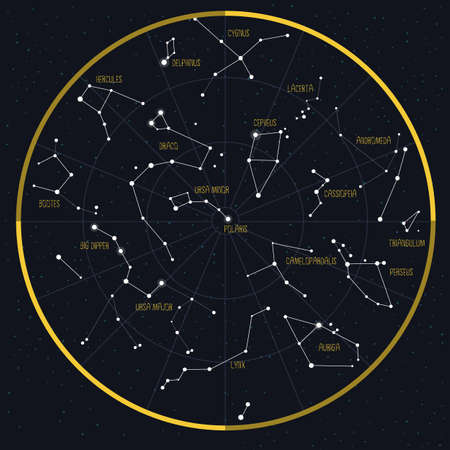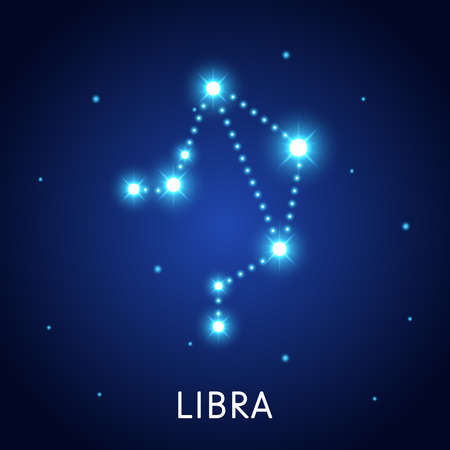Introduction: Understanding Intelligence in Indian Context
In the diverse and culturally rich landscape of India, intelligence is perceived as much more than academic excellence or cognitive ability. For countless Indian families, a child’s intelligence is seen as a harmonious blend of sharp mind, emotional wisdom, adaptability, and ethical grounding. This holistic understanding is deeply rooted in centuries-old traditions and values, where parents not only wish for their children to excel in studies but also aspire for them to be wise, resourceful, respectful, and spiritually aware. The concept of intelligence is closely linked with a child’s character, behaviour, and their innate ability to navigate life’s challenges. As such, many families seek guidance from astrology to understand how cosmic influences shape their child’s intellect and personality from an early age. Indian astrology offers unique insights into these aspects, helping parents nurture their child’s potential while aligning with their natural inclinations and strengths.
2. Role of Planets as per Vedic Astrology
In Indian culture, the understanding of a childs intelligence and nature is deeply rooted in Vedic astrology, or Jyotish Shastra. According to ancient texts and traditional beliefs, specific planets play a pivotal role in determining the intellectual capacities and innate temperament of a child. Among all planetary influences, Mercury (Budh), Jupiter (Guru), and Moon (Chandra) are regarded as the primary drivers shaping mental faculties, cognitive skills, and emotional responses.
The Influence of Key Planets
Mercury (Budh): Known as the Karaka (significator) for intellect, logic, and communication skills, Mercury’s placement in the birth chart is believed to reflect how quickly a child grasps knowledge, their memory power, and their ability to articulate thoughts. A strong Mercury makes children sharp-minded and good at mathematics or analytical subjects.
Jupiter (Guru): Often called the teacher among planets, Jupiter governs wisdom, higher learning, and moral values. Its favourable position blesses a child with curiosity for knowledge, spiritual inclination, and an optimistic approach towards life. Jupiter also enhances decision-making abilities and generosity.
Moon (Chandra): The Moon represents mind and emotions in Vedic astrology. Its strength in a horoscope indicates emotional stability, creativity, and adaptability. Children with a well-placed Moon are often imaginative, sensitive to others’ feelings, and capable of balanced thinking.
Comparison Table: Planetary Influence on Childs Mind
| Planet | Main Influence | Traits Developed |
|---|---|---|
| Mercury (Budh) | Intellect & Reasoning | Sharp mind, Logical thinking, Communication skills |
| Jupiter (Guru) | Wisdom & Learning | Moral values, Curiosity, Decision making |
| Moon (Chandra) | Mental State & Emotions | Imagination, Emotional balance, Adaptability |
Indian Astrological Perspective on Child Development
From an Indian perspective, parents often consult astrologers soon after childbirth to understand these planetary positions in the Janam Kundali (birth chart). Remedial measures like chanting mantras or performing rituals are sometimes recommended to strengthen weak planets or pacify malefic ones. This practice continues to shape parental expectations regarding education and personality development across many Indian families today.

3. Birth Chart Analysis: Key Houses and Yogas
Understanding the Major Houses in a Child’s Horoscope
In Indian astrology, the birth chart or Janam Kundli plays a vital role in decoding a childs intelligence and behaviour. The specific houses in the horoscope shed light on different aspects of a childs mind and personality. The 1st House, also called the Lagna or Ascendant, signifies the childs general nature, self-expression, and physical appearance. A strong Ascendant lord ensures confidence and a balanced approach towards life. The 2nd House is linked to speech, early education, family environment, and communication skills. Planets like Mercury and Jupiter placed here bless the child with clarity of thought and good learning abilities. Most importantly, the 5th House, known as Buddhi Sthana, represents intellect, creativity, memory power, and academic performance. Benefic influences on this house indicate sharp intelligence and original thinking.
Significance of Budhi Yoga and Other Combinations
Besides the influence of individual houses, certain yogas (planetary combinations) bring exceptional intellectual growth in a child’s horoscope. Budhi Yoga forms when Mercury joins benefic planets like Jupiter or Venus without affliction from malefics such as Rahu or Saturn. This yoga grants brilliance, logical thinking, quick grasping power, and eloquence in speech—traits highly valued in Indian families striving for academic excellence. Another important combination is Dhi-Mati Yoga, which arises when both Mercury and Jupiter aspect or occupy the 5th House. Children born with such yogas are seen to excel in studies, decision-making, and even creative arts.
The Indian Context: Traditional Beliefs & Modern Relevance
In Indian culture, parents often consult astrologers soon after childbirth to assess these planetary positions in their child’s chart. They believe that understanding these factors helps nurture the child’s natural gifts while addressing potential challenges at an early stage. Today, even as modern education gains ground, many Indian families continue to rely on astrological insights alongside conventional methods to shape their children’s future paths.
Cultural Beliefs and Parental Expectations
In Indian society, astrology is not just a personal belief but an integral part of family life and parenting. Many parents consult astrologers soon after a child’s birth to understand the planetary positions in their child’s horoscope (Janam Kundali). These traditional beliefs deeply influence parental hopes, aspirations, and even daily decisions regarding their children. For example, if a child is born with Mercury (Budh) strongly placed in their chart, parents may expect them to excel in academics or communication-based careers. Similarly, a strong Jupiter (Guru) placement could prompt parents to encourage spiritual or educational pursuits.
These expectations are not only shaped by planetary influences but are also reinforced by cultural values and community traditions. In many families, certain planets are associated with specific qualities: Mars (Mangal) with courage and leadership, Venus (Shukra) with artistic talent, and Saturn (Shani) with discipline and perseverance. Parents often nurture these qualities from an early age based on astrological advice.
| Planet | Associated Trait | Common Parental Expectation |
|---|---|---|
| Mercury (Budh) | Intelligence, Communication | Academic Excellence |
| Mars (Mangal) | Courage, Energy | Leadership Roles |
| Venus (Shukra) | Creativity, Artistry | Pursuit of Arts |
| Jupiter (Guru) | Wisdom, Spirituality | Higher Education |
| Saturn (Shani) | Discipline, Patience | Stable Career |
This reliance on astrology can also shape important life decisions such as choosing the right educational stream or extra-curricular activities for the child. In some cases, it may lead to pressure on the child to live up to these astrological predictions. Yet, for many Indian families, these beliefs offer comfort and guidance in navigating parenting challenges—blending tradition with aspirations for their children’s future success.
5. Practical Remedies and Rituals
Common Astrological Remedies for Enhancing Intelligence
Indian astrology offers various time-tested remedies to harmonise planetary influences and boost a child’s intellect. For example, wearing gemstones such as yellow sapphire (Pukhraj) for Jupiter or emerald (Panna) for Mercury is believed to strengthen the beneficial impact of these planets. Many families also consult astrologers for personalised yantras or mantras that align with their child’s birth chart, chanting them regularly to promote clarity of mind and learning abilities.
Poojas and Rituals Practised by Indian Families
Poojas (ritualistic worship) dedicated to specific deities and planets are an integral part of many Indian households. For children, Saraswati Pooja is especially popular, invoking the blessings of Goddess Saraswati, the deity of knowledge and wisdom. On auspicious days like Vasant Panchami, families organise group recitations of Saraswati Vandana and offer white flowers, fruits, and sweets to the goddess. Additionally, Navagraha Shanti poojas are performed to pacify malefic planetary influences in a child’s horoscope and ensure intellectual growth.
Lifestyle Suggestions Rooted in Indian Culture
Beyond rituals, Indian traditions recommend several lifestyle practices that complement astrological remedies. Encouraging children to recite Gayatri Mantra daily is considered highly beneficial for mental sharpness and memory retention. Parents often introduce practices such as meditation, yoga, and pranayama from an early age to foster concentration and emotional balance. Consuming sattvic food—fresh fruits, vegetables, milk, ghee—supports brain health as per Ayurveda. Many families also follow simple routines like starting studies after lighting a diya (oil lamp) or placing a Tulsi plant near the study area for positive energy.
Community Practices and Sharing Wisdom
In many Indian communities, elders play a key role in sharing astrological insights and home remedies. Group chanting sessions, temple visits on auspicious weekdays like Thursday (for Jupiter), and storytelling about mythological figures known for their wisdom are all part of cultural upbringing. These collective activities not only reinforce faith in astrological guidance but also nurture a supportive environment for the child’s holistic development.
Conclusion: Blending Tradition with Modern Parenting
While modern education is essential, integrating these traditional remedies and rituals can provide additional support in nurturing a child’s intelligence and positive nature. By respecting both astrological insights and practical lifestyle habits rooted in Indian culture, families help their children realise their fullest intellectual potential.
6. Limitations and Modern Perspectives
While Vedic astrology offers fascinating insights into a childs intelligence and nature through the influence of planets, it is important to acknowledge its boundaries. Astrology, by tradition, has been a guiding light in many Indian families for generations, shaping decisions about education and upbringing. However, in todays fast-evolving world, parents and educators must adopt a balanced view that combines astrological wisdom with modern scientific understanding.
Modern research recognises that intelligence is shaped by a complex mix of genetics, environment, opportunities, and personal effort. While planetary positions might indicate tendencies or inclinations in a childs mind, they do not rigidly determine success or capability. Over-reliance on astrological charts can sometimes overshadow the importance of nurturing each child’s unique talents through education and encouragement.
A balanced approach respects both tradition and progress. Many Indian families continue to consult astrologers for guidance but also prioritise good schooling, exposure to diverse experiences, and emotional support. This harmony allows children to flourish without being limited by what is written in their horoscope.
It is essential for parents to remember that astrology can provide valuable pointers but should not be the sole factor in making decisions about a childs future. Embracing modern perspectives alongside ancient wisdom ensures that children are empowered to reach their full potential in a rapidly changing society.
Ultimately, blending the cultural richness of Indian astrology with the benefits of contemporary education creates an environment where every child can thrive—guided by both the stars above and the opportunities here on earth.


